Can you eat watermelon seeds?
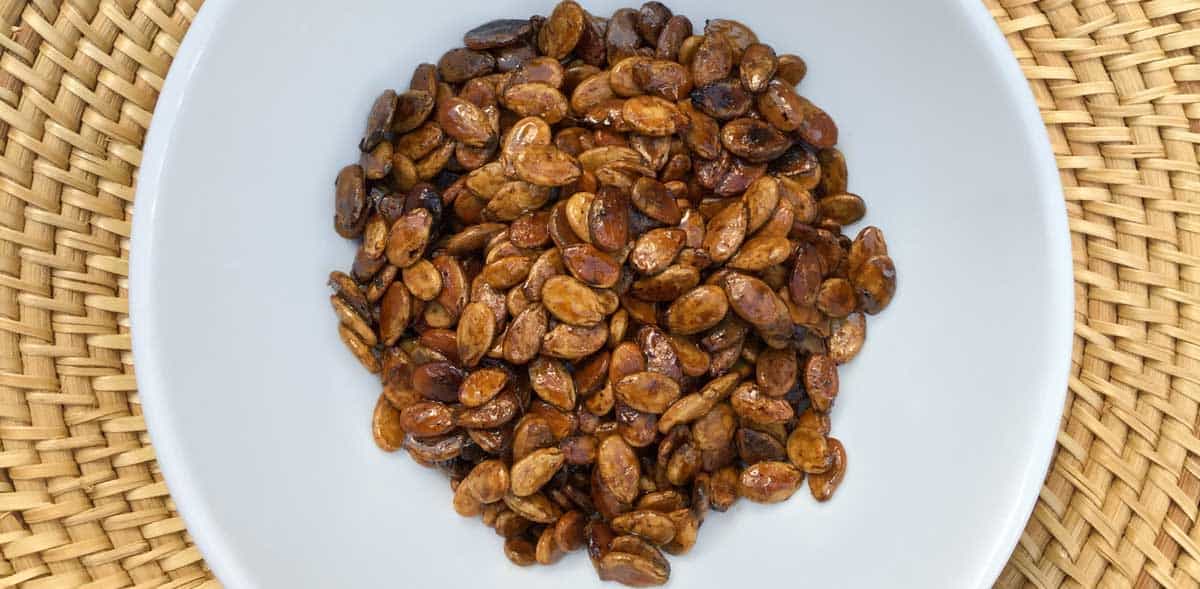
Tyrant Farms' articles are created by real people with real experience. Our articles are free and supported by readers like you, which is why there are ads on our site. Please consider buying (or gifting) our books about raising ducks and raising geese. Also, when you buy through links on our site, we may earn an affiliate commission. Learn more
Yes, watermelon seeds are edible — in some cultures they’re even more valued as a food than the fruit! Here’s how to grow and eat your own watermelon seeds.
When I was a kid, I remember my grandmother telling me that if I ate watermelon seeds, they’d sprout in my stomach and grow out of my ears. Although this sounded a bit terrifying, my curiosity got the better of me: I ate watermelon seeds every time I got the chance.
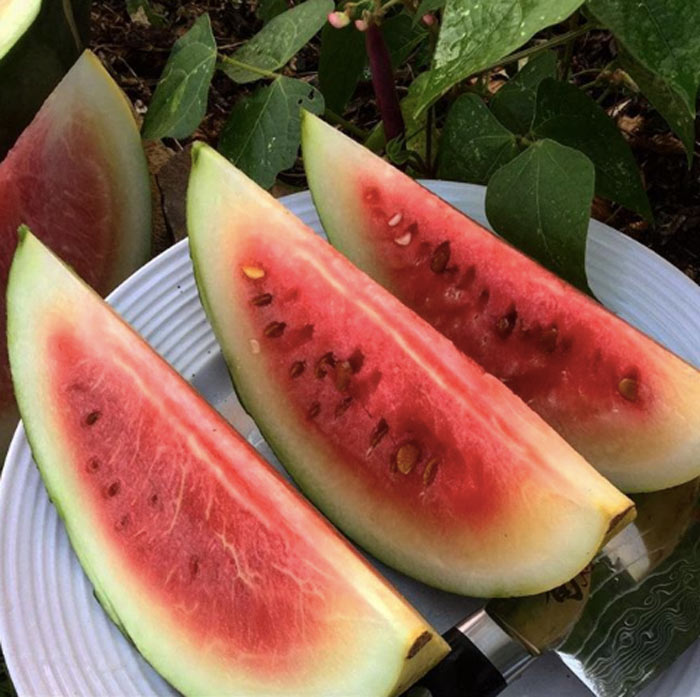
Despite my grandmother’s warnings (and much to my disappointment), I was never able to successfully grow watermelons out of my ears. However, this memory of my grandma sprouts up every time I accidentally munch on a fresh watermelon seed while eating the sweet summer fruit. (Yes, I know that watermelons are technically berries, botanically speaking.)
Maybe that was grandma’s goal all along: plant a seed in my brain that sparked a fond memory of her each time I ate watermelon.
Sail to new culinary shores with edible watermelon seeds

The Tyrant and I are food explorers. We love discovering new heirloom seed varieties and unusual edible plants to grow in our garden. We also enjoy exploring cuisines from other cultures.
A few years ago, we were in a Middle Eastern grocery store seeing what unusual foods we could get our hands on when we spied bags of roasted seeds that looked oddly familiar. There wasn’t a single English word on the label, but our suspicions were confirmed when we asked the shopkeeper what they were. “Roasted watermelon seeds,” he said. “Very good.”
Our first reaction: “Woah. Watermelon seeds are considered a good food?”

Watermelons are native to Africa, but have been spread around the world by traders and merchants for hundreds or even thousands of years. As it turns out, plenty of other cultures don’t just view the fruit as a delicacy, they also enjoy roasting and eating watermelon seeds.
How To Eat Watermelon Seeds
Raw watermelon seeds straight out of the melon aren’t that great to eat. They’re crunchy, fibrous, and slightly bitter.
This is due to the thick seed coat that’s protecting the endosperm and other goodies hidden inside—and the hidden part of the seed offers the best flavor and nutrition.

Watermelon seeds are typically roasted or cooked in a wok and eaten similarly to the way we eat sunflower seeds in America. We like to use the watermelon seed recipe at the bottom of this article and eat the whole watermelon seed, coating and all.
Watermelon Seeds’ Nutritional Value
Want another good reason to eat watermelon seeds? Like other seeds and nuts, watermelon seeds are REALLY good for you.
Watermelon seeds are high in vitamins, minerals, fiber, and have lots of good fats. Also, watermelon seeds have an exceptionally high protein content. How high?

That’s right, watermelon seeds pack more protein per ounce than both sunflower seeds and almonds!
Organically grown heirloom watermelons
The best tasting watermelons we’ve ever eaten are the ones we’ve grown ourselves. As food adventurers, we love the wide range of colors, sizes, shapes, and flavors that come from heirloom seeds (watermelons included).
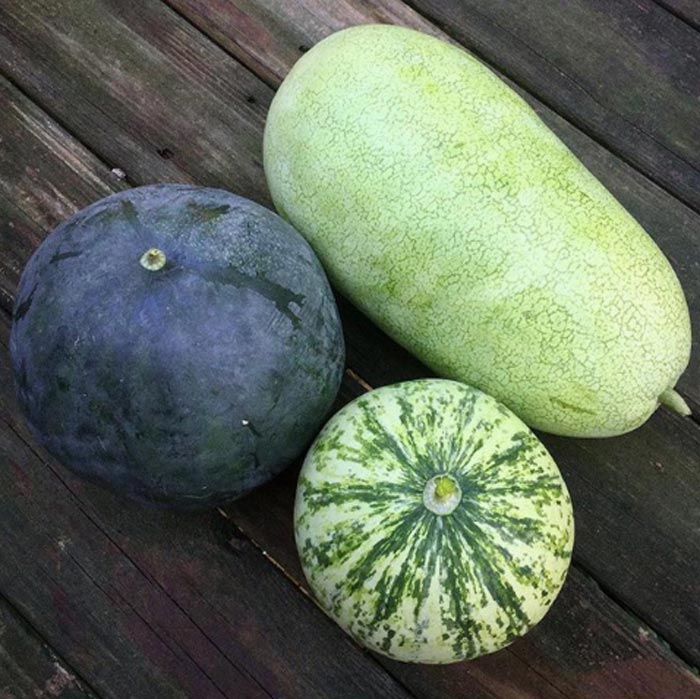
We grow our watermelons using organic and permaculture methods. Doing so ensures they’re growing in living soil that’s teeming with microbial life. Those microbes team up with the roots of the plants to provide disease and pathogen protection plus optimal water and nutrient uptake.
The result: the most flavorful, nutrient-dense watermelons and watermelon seeds possible.The seeds we don’t save to grow in future years become a healthy and delicious snack. Oh, and you can also pickle or candy the watermelon rinds so that no part of the plant goes into your compost bin. We’ll try to get a watermelon rind recipe up soon.
Until then, enjoy your edible watermelon seeds using the watermelon seed recipe below!

Recipe: Crunchy pan-roasted watermelon seeds
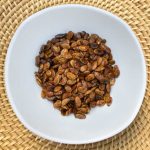
Crunchy pan-roasted watermelon seeds
Ingredients
- 1 cup watermelon seeds
- 2 cups water
- 1 tablespoon coconut or grape seed oil
- 1 teaspoon sea salt
Instructions
- When eating watermelons, separate the seeds and put them in a colander. Only save the hard, mature watermelon seeds for roasting—not the undeveloped white seeds.
- Rinse the fresh seeds thoroughly, removing any sticky film on the seeds and small chunks of watermelon. If you're not going to eat them immediately, spread them out on a flat surface to dry for long-term storage. You can use fresh or dried watermelon seeds for this recipe.
- Heat a skillet or wok on medium high heat (wok preferred). Add *all ingredients. (*If you'd prefer to have flaked salt on your seeds, add it after cooking rather than while cooking.)
- Continue to cook until the water boils off. Once water boils off, you'll want to continuously stir the watermelon seeds to ensure they don't stick to the wok or burn. Continue cooking until the seeds are browned to the desired level of doneness.
- Allow to cool before eating. Depending on the size of the seed used, you can crack open the shell like you would a sunflower seed, and eat the tasty goodness on the inside. You can also eat the whole seed if you’d prefer (that's what we do). They taste just like roasted pumpkin seeds but they have a thick, crunchy seed coating that some people might not like.
According to many grandmothers, cooking watermelon seeds also ensures that they won’t germinate in your stomach and sprout out of your ears.
Enjoy!


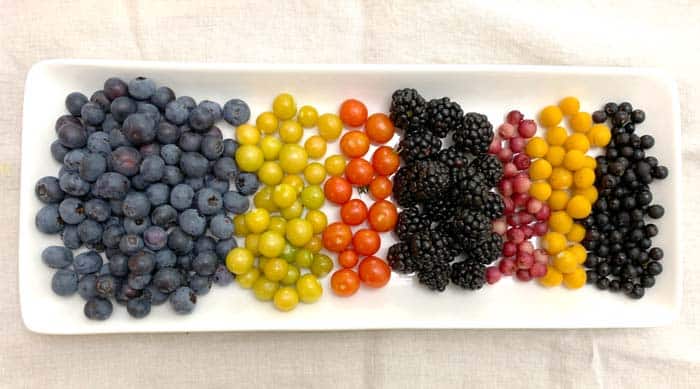
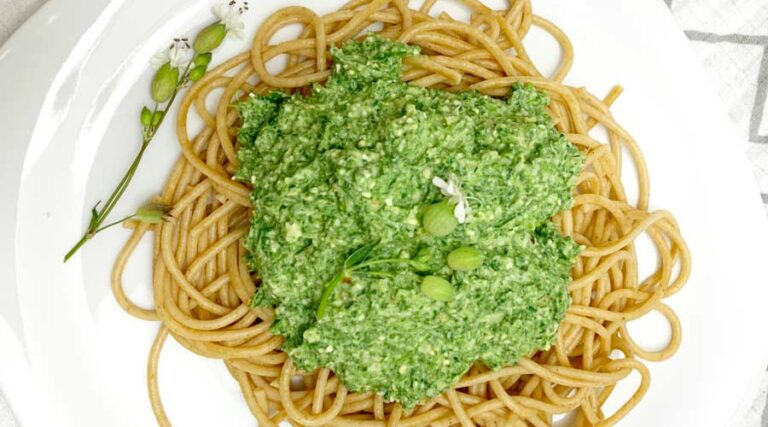
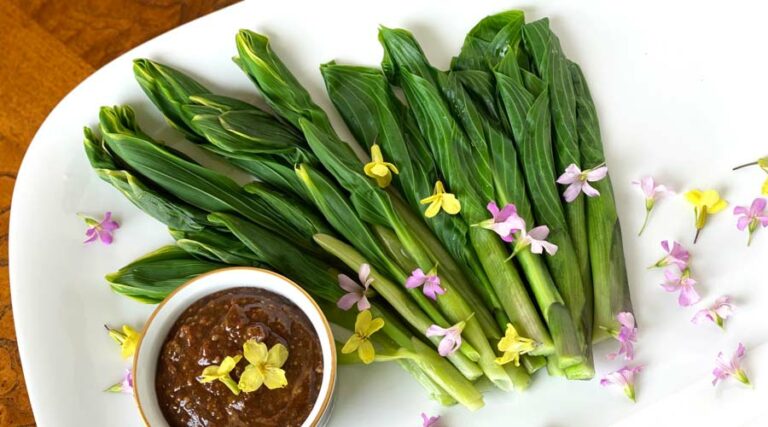
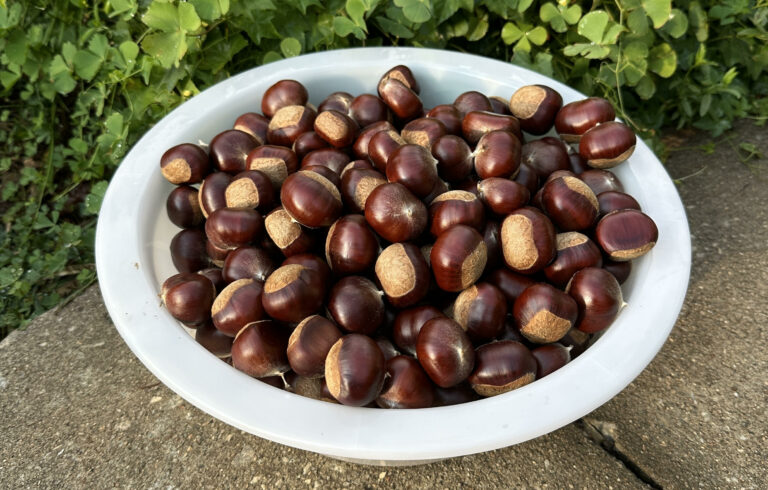
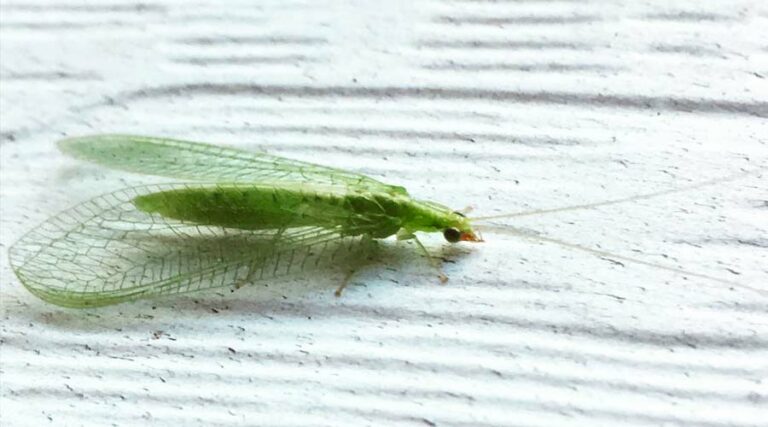
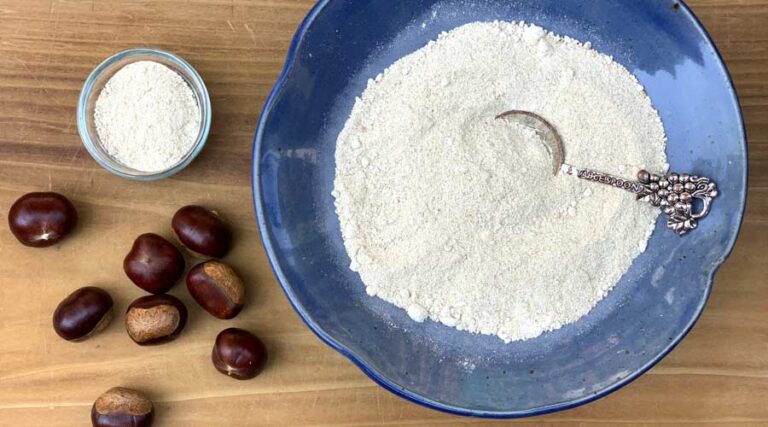
I’m so happy to see this recipe and all of the great comments. Love watermelon and growing them now I can use it all with no waste. I can’t believe I never knew about eating the seeds no one has ever mentioned roasting them to me nor have I seen it in any recipe books before. Wow! They are so good for you in so many ways too. Thank you for sharing your wisdom!
Thanks Michele! Yes, watermelon seeds are a nice secondary edible part of the fruit (which is technically a berry). There is some variability between watermelon varieties when it comes to size or seed, toughness, etc. but all are edible. Enjoy!
Wow awesome recipe, I use true elements raw watermelon seeds for this, and it was really good. The recipe tastes yum!
As it is now watermelon season and both myself and my 2yr old are loving them – what are the thinner white pip like seeds in the watermelon. Are they of any risk?
The large black seeds i can pick out, but these smaller ones are a lot harder
The small white seeds are just immature seeds that never fully developed before the fruit ripened. Perfectly safe to eat them as well although they’re flavorless.
Hi Aaron, I’m inspired by your writing about watermelon seeds and keen to sprout my own, but find no guidance on how to do it. Can you help me please?
Hi Lucia! Are you interested in sprouting watermelon seeds to grow mature plants or sprouting them to eat as sprouts? Assuming you’re interested in growing watermelons as plants in your garden, they’re actually really easy to start and grow. As with other large seeds in the cucurbit family (summer squash, pumpkins, cucumbers, etc) we recommend direct-sowing them in the ground about 1″ below the soil surface.
Nope, I want to sprout them for eating….
Hmm, I’ve never heard of anyone eating watermelon sprouts. There probably aren’t any compounds in the young plants that would cause averse and/or allergic reactions, but you may want to take it slow at first by only eating a few sprouts your first time to see how your body responds. I’d just follow basic sprouting instructions for other large seeds, such as sunflower seeds, that are sometimes grown for edible sprouts.
Hi. Is it ok if I ate a watermelon with the seed inside it? no chewing them.
Sure! There’s absolutely no risk in eating watermelon seeds. They’re quite healthy: high in protein and fiber. And they will not sprout out of your ears if you eat them.
Below is an interesting comment that was shared with us via email by Alan Morse. Alan gave us permission to share:
“Had to pass this on: Have a daughter and multiple friends from China. Of course, watermelon seeds are often served as a “dessert” course after meals in China. One friend recalled fond memories of going out to farms with her family during watermelon harvesting season. The farmers would let anyone eat his/her fill of melon at no charge…on one condition. They had to leave all the seeds behind. The seeds were the cash crop, and the families feasting on watermelon helped separate the seeds. (No seed spitting contests there!)
One more comment: Don’t be tempted to look on this as a “Chinese” cultural practice. It’s a huge geographically and culturally diverse country of 1.3 billion people, and this was a practice among only one small piece of that vast multitude of people.”